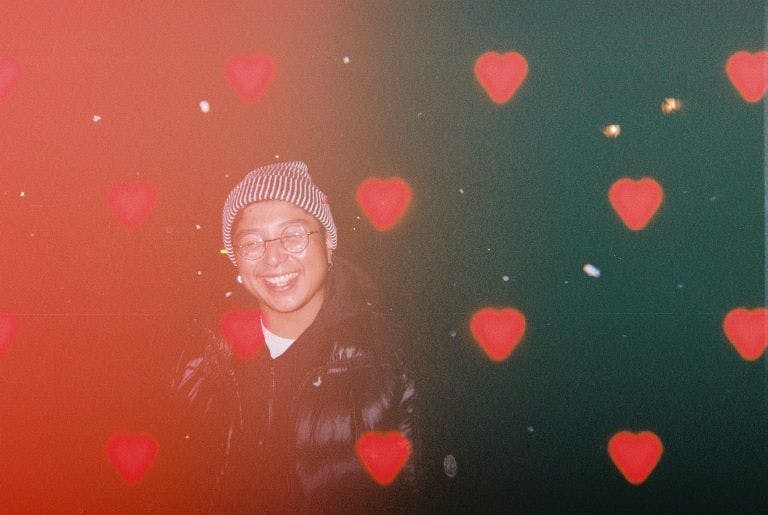Alternate Clocks: Notes on building a familial archive, trans time, & refusal
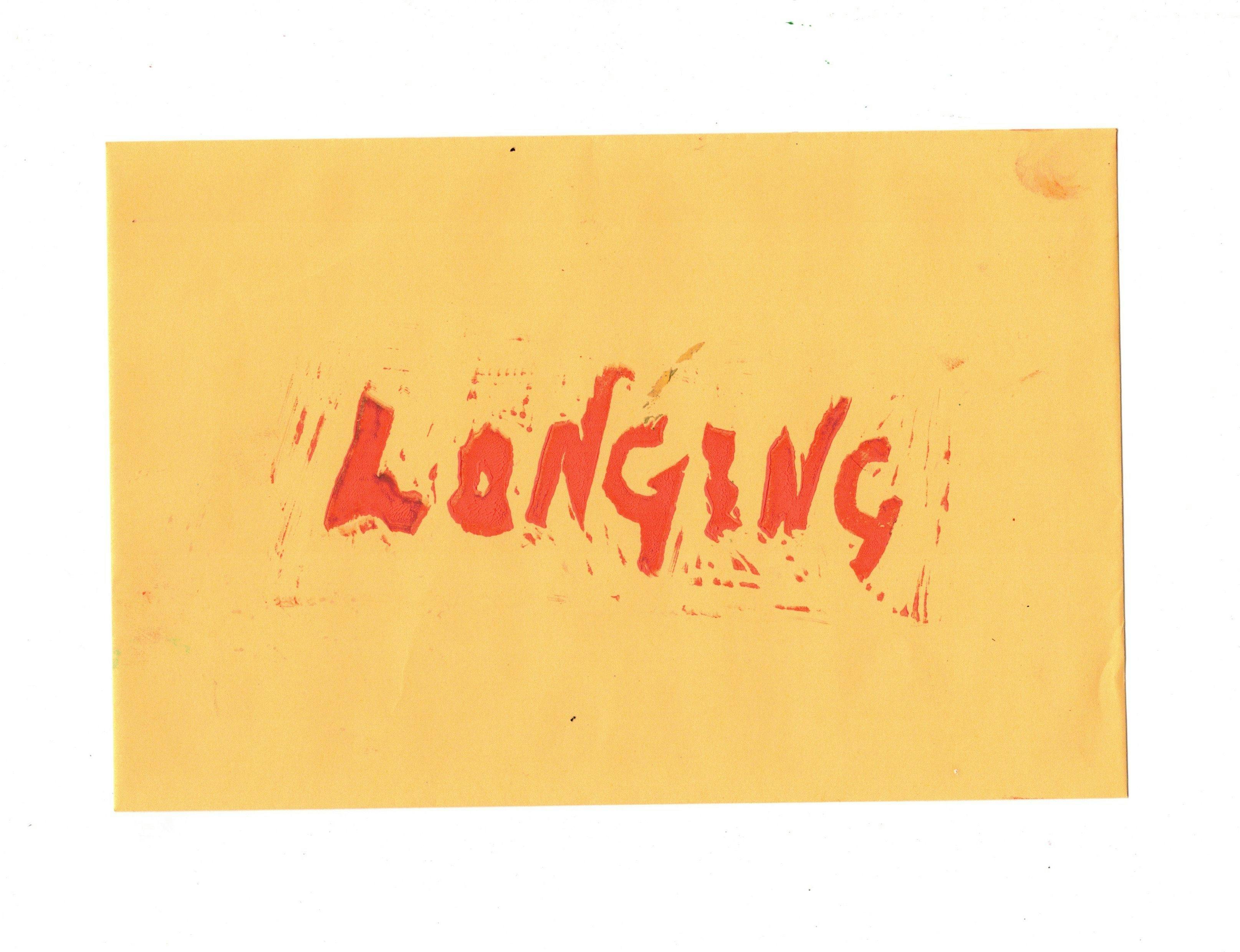

On the corner of Avenue Tamalpais in the Cuauhtémoc Borough of Mexico City, a new pharmacy’s blue inflatable marketing ploy folds and dances to a Cumbia Drive remix of Madonna’s “Hung Up.” The lyrics distort in the sun, TIME GOES BY SO SLOWLY echoes over a pulse of drums. A week before, browsing a knick knack shelf in a thrift store in Ridgewood, Queens, I pick up a mug that reads THE DAYS ARE LONG BUT THE YEARS ARE SHORT. I contemplate buying it, wondering how I’d feel holding that phrase in my hand every morning. Months earlier, helping my family clean out my Abuela’s house after her death, I find instructions for my Abuelo’s wristwatch in the same sleeve of photos where he and my Abuela are on a rare vacation with their friends. A moment of leisure I never knew they had.
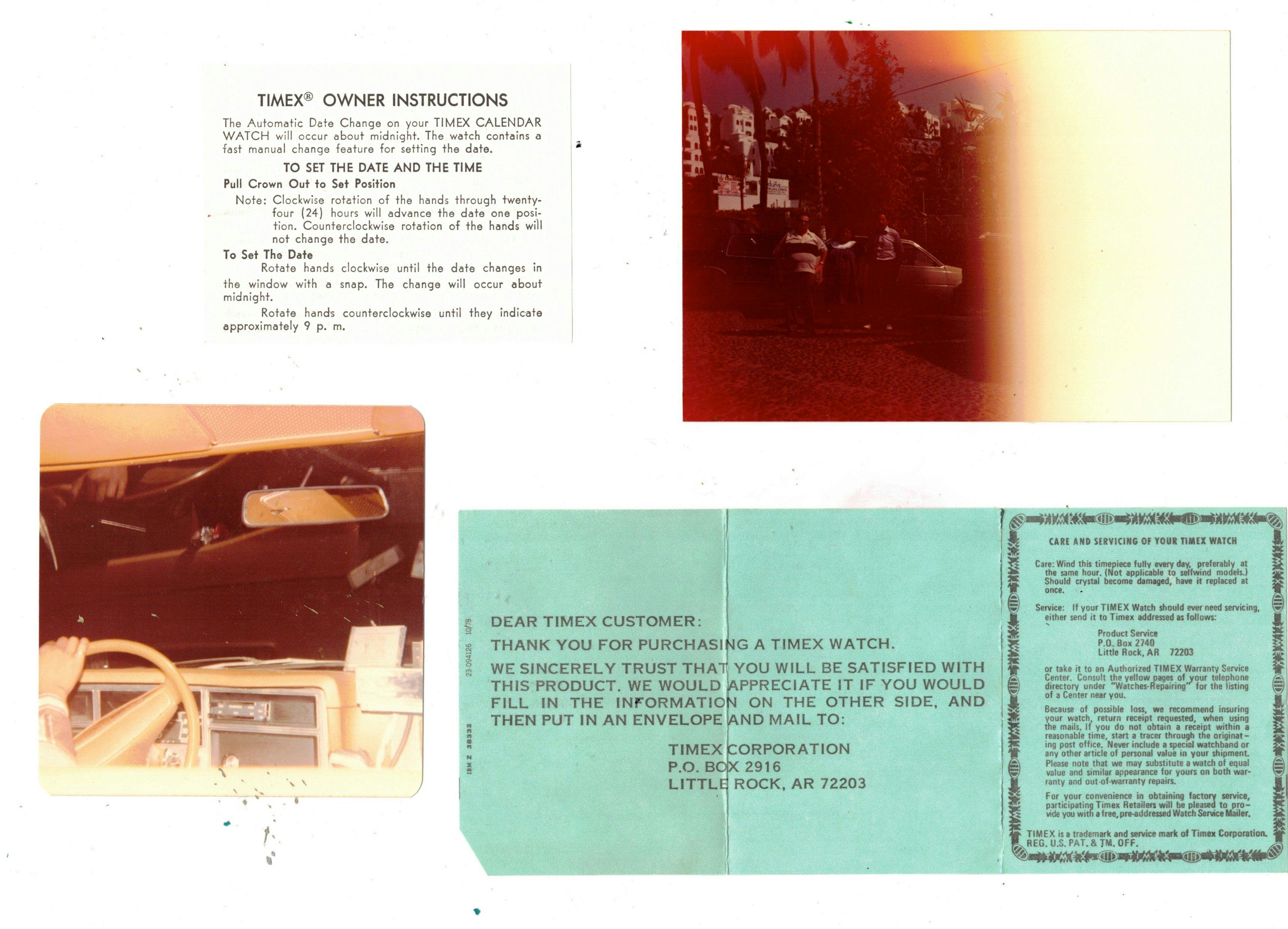
All illustrations and archival documents are courtesy of the author.
Abuelo came to this country to work the land under the bracero program, which means he lived most of his life in agricultural capitalistic clocktime he could not refuse. The instructions for the watch suggest he is in charge of setting the date, hour, and minute. But what authority did he have synchronizing to a construction of time that was not his own? I’ve been thinking a lot about my temporal experience. A daunting task during a period of human history where my attention is commodified and 44 states in the country are deciding the future of trans lives and healthcare. Where are the alternate clocks and spaces of refusal from this current reality? Where do I feel empowered to be who I am?
In 2020, I moved from New York City to San Diego and into my Abuela’s house in National City, CA. My mother was her caretaker and we lived together for 4 months just the three of us. I come from a lineage of Cancers. Abuela was a Cancer with a Capricorn Moon, which meant she felt my love most when I made her a meal, cleared the table, and washed the dishes well and with intention. My mom is a Cancer Sun with a Libra Moon, which means she is highly analytical and the emotional caretaker of us all. And me, the Cancer Sun, Virgo Moon trans nieto just before the start of their second puberty. The house felt like a time capsule of my childhood and of those that belonged to my mom, tios, and tia in the United States. It was the first house my family moved to from Mexico and the three small bedrooms held us all at one point or another, our forever home. Endless birthdays and celebrations around the long wooden dining table.
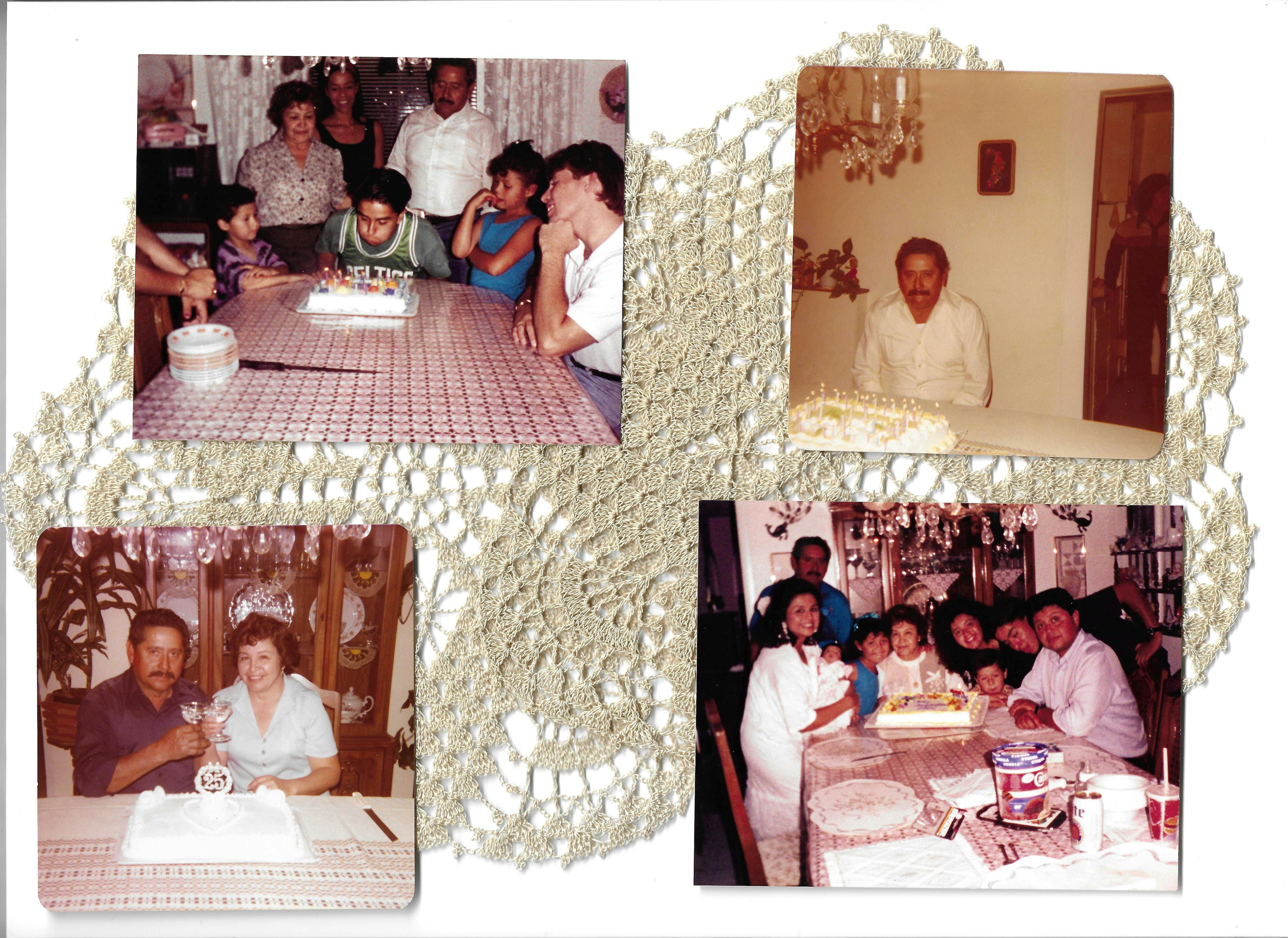
Abuelo’s house was the first site of refusal for me. A respite from the idea that all we are is what we can produce for capitalism. In my memory, there were no clocks here, just the crow of the neighbor’s rooster, the kneading and stretching of masa on the kitchen counter, and the time it took for sheets to dry on the clothesline. It’s here I witnessed my Abuelo at rest, sitting and reading while I slept in a hammock he hung between palm trees.
And years later, it’s here I walked with Abuela to greet each and every lemon and mandarin that grew in her small grove. We worked on rompecabezas leisurely, always piecing a puzzle of New York City, the Statue of Liberty, or illustrated landscapes of vineyards and mountains together. I worked on them while she napped, leaving the last piece for her to put into place. Dun dun! We would sing in unison, mimicking the ending trumpet notes of mariachis. And in the living room, it became an exercise of memory and reverence to pull out a box of photos and talk to Abuela about our family. We did this together with my mom, taking turns pulling out portraits from albums and shoeboxes. I met so many of my ancestors here for the first time, while questions of gender and my place in this lineage expanded and complicated. Would these people recognize and call me kin?
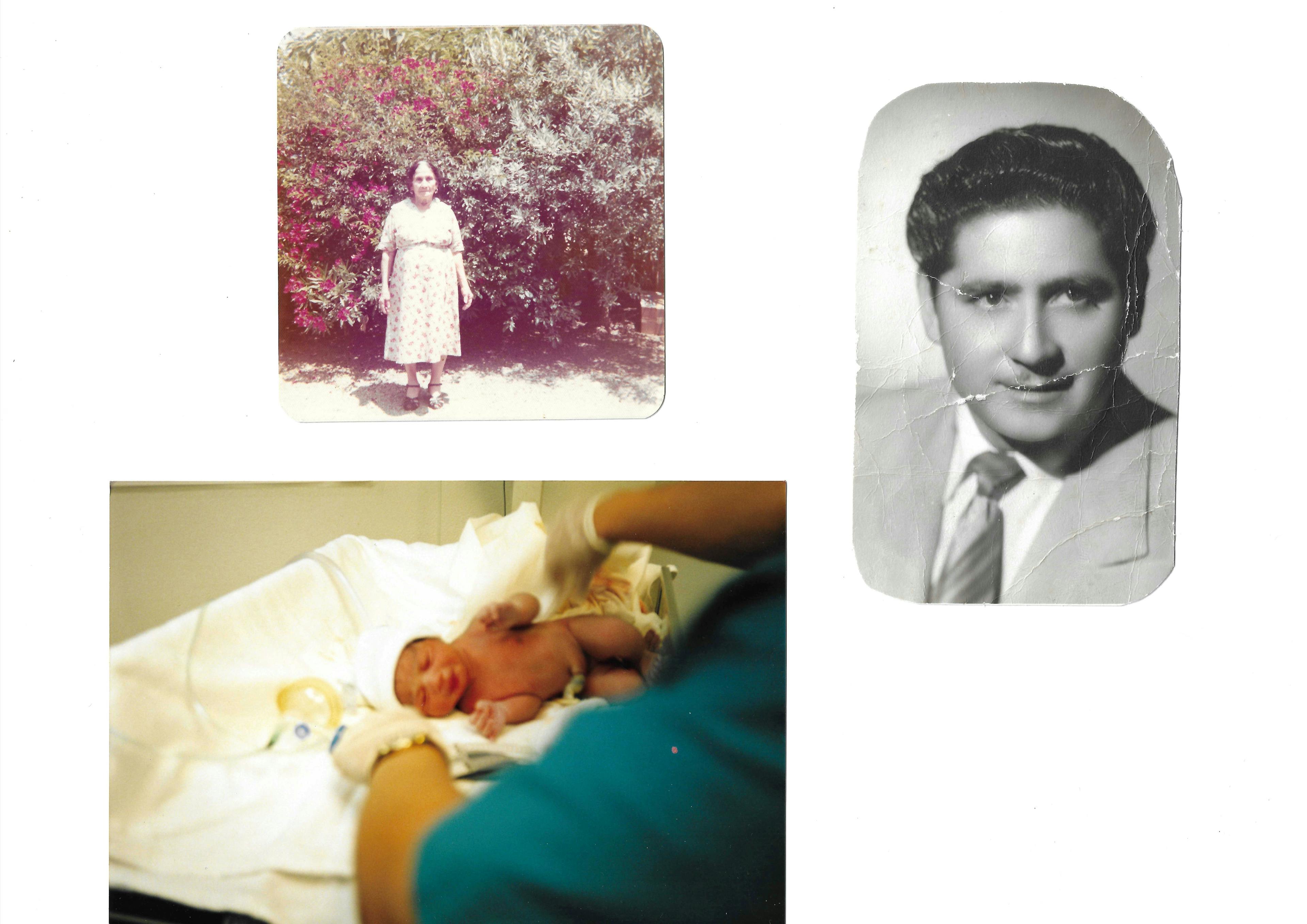
In T. Fleischmann’s book-length essay TIME IS THE THING A BODY MOVES THROUGH, they write, “What can one do with a past? What I mean is, what can we do with our bodies?” I find myself between these two questions. Wondering about time within my family but also within my body. When I think about my family’s past, I wonder what place I hold in its future. In a 6 minute voice note, I share my thoughts on trans time with a friend. How the act of longing can be a technology that pushes past dysphoria to bring us into a future body.

I try to define this kind of time travel as a practice of envisioning potentiality while recognizing that my embodiment is not a fixed line but a spiral that circles itself and moves outward. I wish it to be a kind of gentle time travel, an existence of reaching back and forward in the same breath. Healing my former selves, sending compassion to them in the compromises I made in life and in love, in the workplace and in public. Moving through my second puberty and facing everything from the first one, the hormonal imbalances mixed with new changes of voice and bacne and anger and horniness that overtake my days like vines that wrap around window sills and up walls. I want to describe and inhabit a temporality where I can exist both ancient and playful outside of consumerism. Where I can tend to a garden with my loved ones in a place we are all safe and unprofitable.
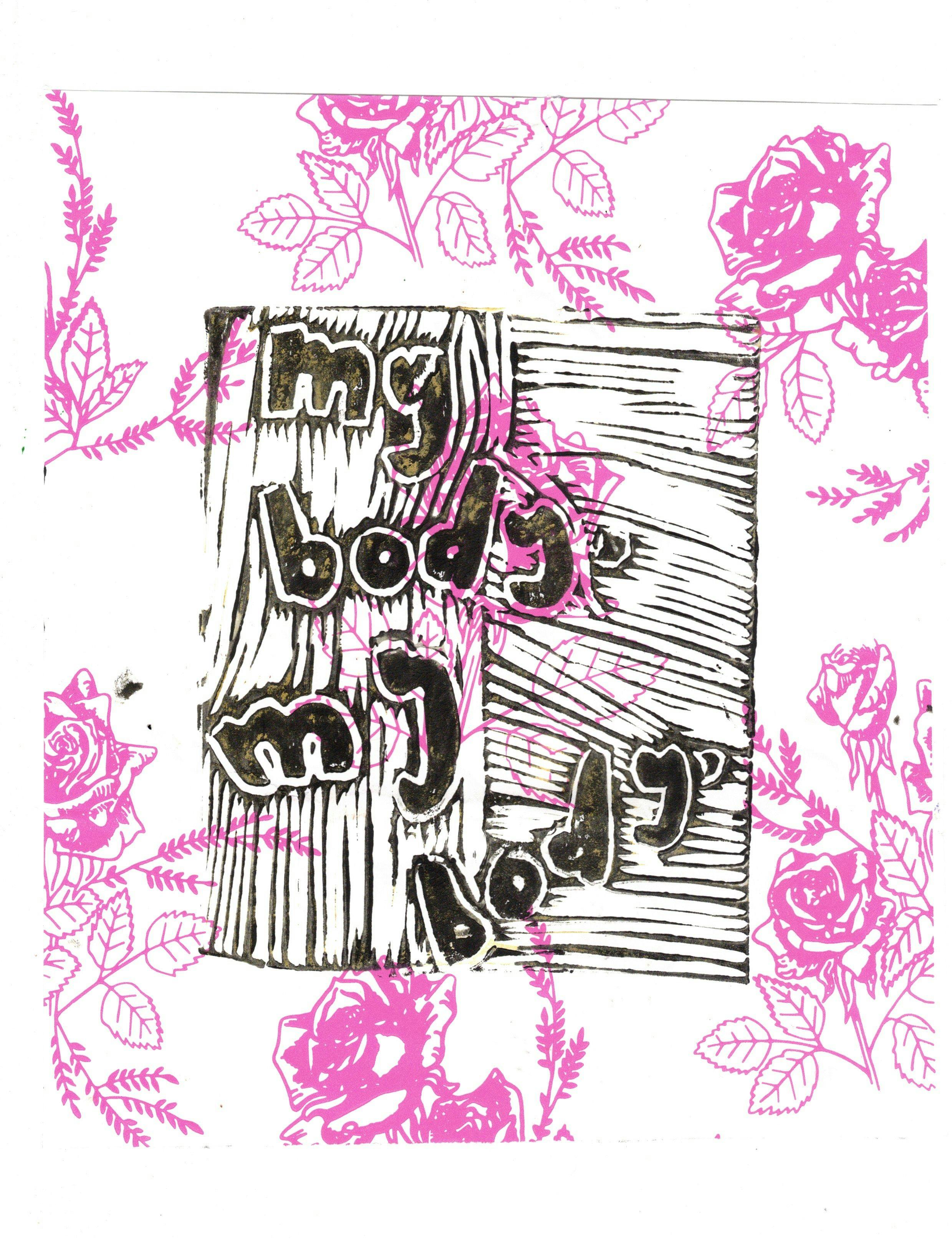
Abuela’s house sold in January. Her furniture, jewelry, paperwork, clothing, and tiny shoes are now scattered in homes across San Diego county. I inherit a pink clamshell chair, a framed watercolor of what looks like a canal in Venice, Italy, too many cups, spoons, and her vocab textbooks and handwritten notebooks from when she learned English in a night school near her house. There are pages of past, present, and future verb tenses and loose college-ruled notebook pages detached and scattered in random places. I find an epistolary exercise of an imagined trip to Paris. I dream she is still there. Time collapses on the bed of my scanner.
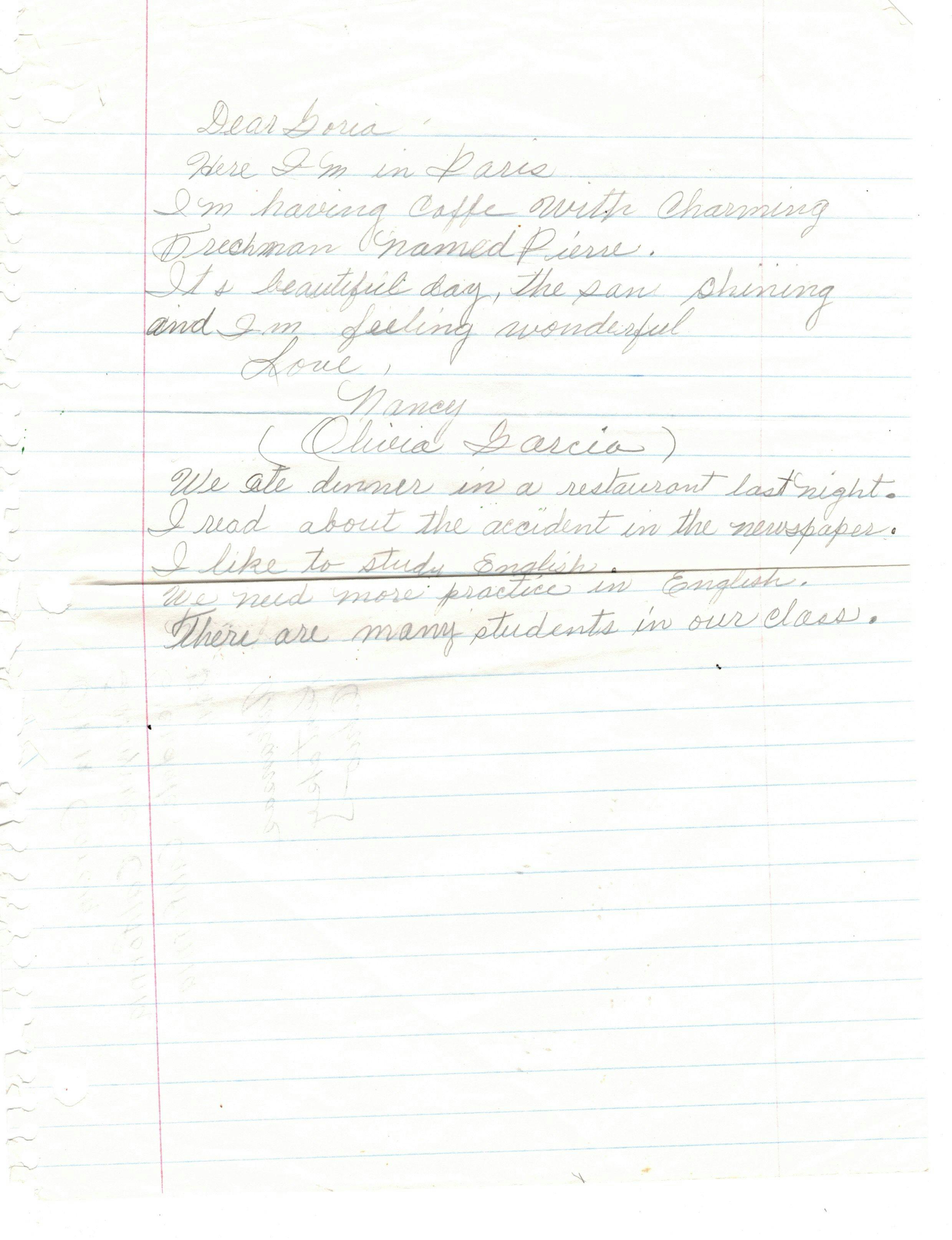
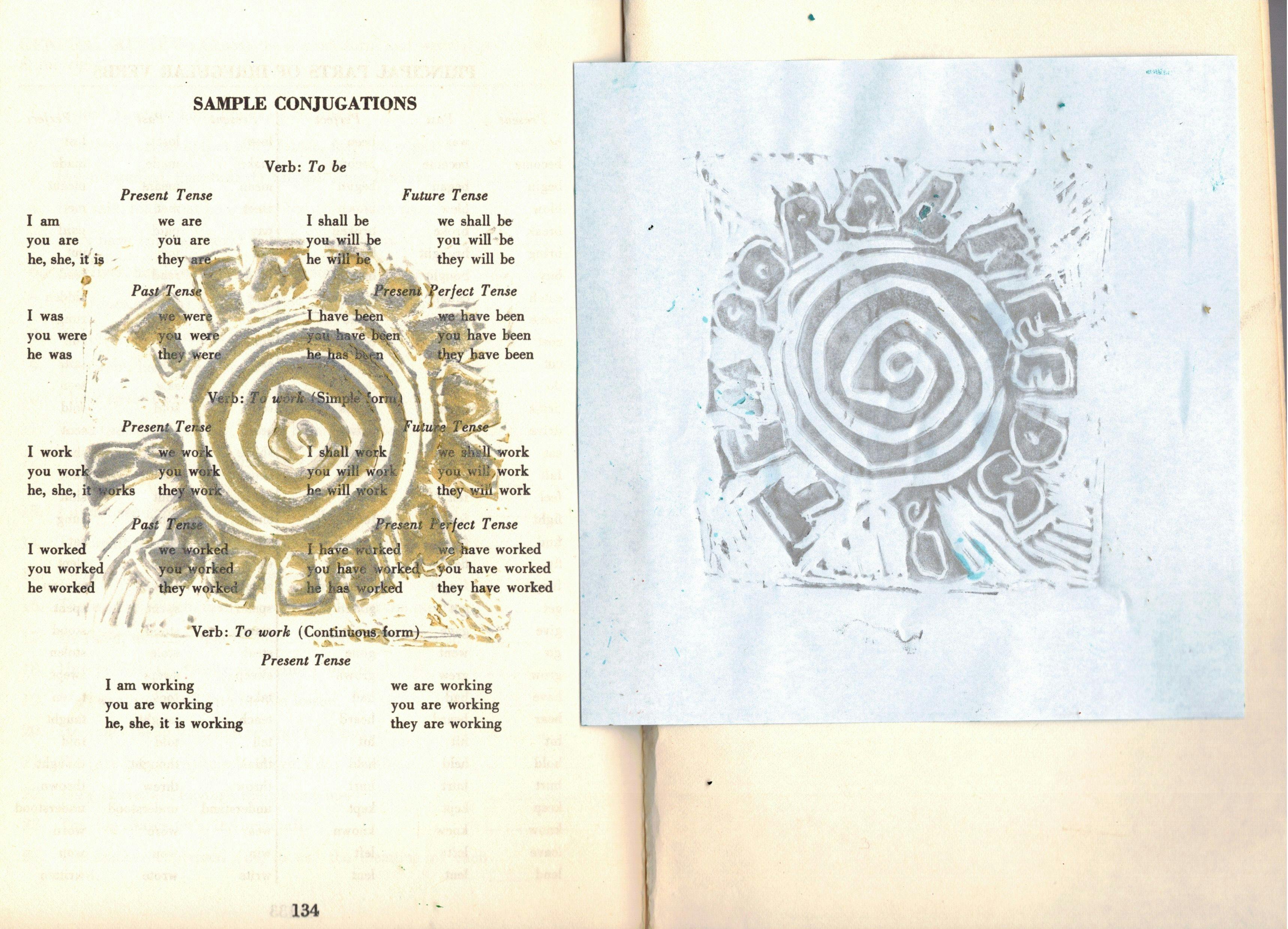
In the late afternoon at my desk, the sun turns a framed photo of my middle school self into a mirror. I see us both simultaneously, one with pigtails, the other with a shaved head. It’s in this form I dream of a future, where every version of me exists at the same time, safely and embraced, a descendant.
